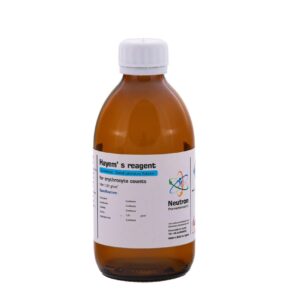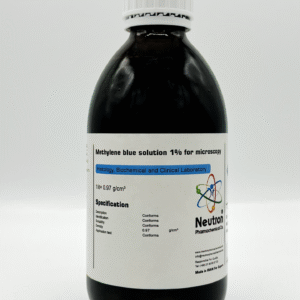Ehrlich’s aldehyde reagent
Ehrlich’s aldehyde reagent is a chemical reagent used in histology and microbiology primarily for detecting indole and certain aldehydes in biological samples.
🏭⚗️ Production
Ehrlich’s aldehyde reagent is prepared by dissolving p-dimethylaminobenzaldehyde (DMAB) in a mixture of hydrochloric acid and ethanol or water at specific concentrations. The solution is mixed thoroughly until the reagent is completely dissolved, then stored in a tightly sealed container away from light at room temperature to maintain its activity.
🔬 Properties
Ehrlich’s aldehyde reagent is a clear to slightly yellowish solution. It reacts with indole groups and aldehydes to form colored complexes, often pink or red, which can be observed visually or under a microscope. The reagent is stable under normal storage conditions when protected from light.
🧪 Applications
This reagent is commonly used in the Ehrlich test for detecting indole production by bacteria, as well as in histochemical staining to identify aldehyde-containing compounds in tissue sections.
⚠️ Safety
Handle with care; the reagent contains acidic and organic components that can cause skin and eye irritation. Use gloves and eye protection, work in a well-ventilated area, and avoid ingestion or inhalation. Dispose of any waste according to local chemical safety regulations.




